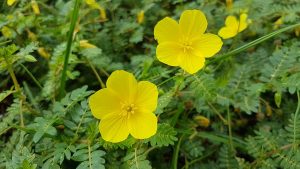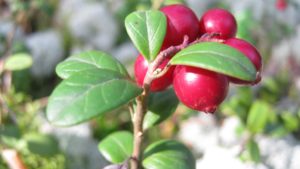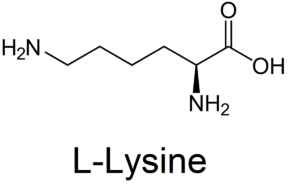Natural Options for ADHD: Part 2
In Part 1, we covered the symptoms of ADHD and outlined several minerals that appear to help reduce symptoms. In Part 2, we’ll cover some additional treatments that also have research backing their potential benefits.

Symptoms of attention deficit hyperactivity disorder (ADHD) are often quite disruptive. Research suggests that untreated ADHD can lead to severe consequences, including drug use, lower academic achievement, antisocial behavior, increased car accidents, lower self-esteem and increased rates of obesity (Shaw 2012).
As such, it’s worth exploring what additional treatments might help to safely reduce ADHD symptoms and improve treatment outcomes. The following approaches, at least for some individuals, may further help provide relief:
- Long chain omega-3 fatty acids
- Pine-bark extract
- Acetyl-L-carnitine
- Dietary approaches
Long Chain Omega-3 Fatty Acids
Long chain Omega-3 fatty acids are fats that are found primarily in seafood and some forms of algae. The main long-chain omega-3 fats include eicosapentaenoic acid (EPA) and docosahexaenoic acid (DHA). Both EPA and DHA have important effects on the brain.
While the most recent meta-analysis of omega-3 fats for ADHD found no benefits, the authors neglected to look for differences based on dosage levels. In addition, they didn’t differentiate between types of omega-3 fatty acids. It’s likely that these limitations may have contributed to the negative results (Handel 2021). They did at least state that omega-3 fatty acid supplementation was found to be safe.
In patients with ADHD, blood levels of omega-3s have been found to be consistently lower than control subjects (Hawkey 2014). While still somewhat controversial, some earlier analyses have found significant benefits with omega-3s for treating ADHD symptoms. The evidence also appears to suggest that EPA is more effective than DHA for ADHD (Bozzatello 2019).
Looking at the data overall, it still suggests that supplements with higher levels of EPA may have a positive impact on reducing ADHD symptoms.
Pine-Bark Extract

Pine bark is rich in antioxidant compounds called polyphenols. These compounds have a growing body of research suggesting a number of clinical benefits, including for some mental health conditions, although research quality is low and more studies are needed (Robertson 2020).
The first published study on using pine bark in children found benefits for ADHD symptom scores with supplementation. The trial lasted four weeks and found improvements in hyperactivity, attention, coordination and concentration. Of interest, after the supplement was discontinued, symptoms returned (Trebaticka 2006).
An earlier trial in adults compared pine-bark extract to standard medication and placebo. Treatment only lasted three weeks and the study failed to find any benefits for any treatment, including medication (Tenenbaum 2002). It’s likely that the design of the study, including its short duration, contributed to the negative results.
The most recent trial, while small, did find benefits. Twenty children with ADHD were supplemented with pine-bark extract or placebo. Supplementation significantly reduced inattention, hyperactivity and impulsivity (Hsu 2021). Of interest, they also showed improved antioxidant status in the children taking the extract.
Carnitine
Carnitine is a compound involved in cellular energy production. It acts as a carrier of fats into the mitochondria—the cell’s energy factories—which can then be burned for energy.
As a supplement, carnitine comes in a number of different forms, including L-carnitine and acetyl-L-carnitine. The “acetyl” form of carnitine allows for easier transit into the brain as compared to other forms.
With potential benefits for both depression and dementia, it’s not surprising researchers have explored carnitine for treating ADHD (Veronese 2018, Montgomery 2003). The first small study compared L-carnitine to placebo. Slightly over half of children responded, with parents reporting ADHD-symptom improvements between 20% and 65% (Oudheusden 2002).
A separate trial added acetyl-L-carnitine to methylphenidate (Ritalin) for treating ADHD. While the acetyl-L-carnitine reduced headaches in children taking medication, the study failed to find any additional benefits in ADHD symptoms with the combination (Abbasi 2011).
The largest trial to date explored acetyl-L-carnitine or placebo in 112 children. Overall, the study didn’t find benefits. However, children with inattentive-type ADHD improved significantly. The authors suggest further research for acetyl-L-carnitine in this subgroup (Arnold 2007). While perhaps not helpful for all children, those that struggle with inattentiveness, possibly combined with depression, may find the most benefit from acetyl-L-carnitine.
Dietary Approaches
Dietary changes have also been explored for treating ADHD. However, due to the numerous difficulties in designing human dietary interventions, the data still remains controversial. One of the biggest challenges is blinding. It’s difficult to have study subjects unaware of which dietary intervention they are receiving.
A recent exhaustive review does a remarkable job of summing up the literature. The strongest evidence suggests that removing food colorings and preservatives may have a modest impact on reducing ADHD symptoms (Nigg 2014). Elimination diets that remove foods thought to be problematic might also have clinical benefits in up to 30% of children. These types of diets generally try to eliminate foods considered inflammatory or allergenic, often focusing on sugar, wheat and dairy.
While dietary changes can be difficult to implement, in motivated individuals, they may yield additional benefits for reducing ADHD symptoms.
Conclusion
ADHD is a condition that can cause significant problems over the course of an individual’s lifetime, especially when left untreated. While medications can reduce symptoms, they are often plagued with side effects. Additional options for helping to reduce ADHD symptoms include supplementation with EPA, pine-bark extract, acetyl-l-carnitine (for inattentive ADHD) and dietary approaches, often including the elimination of food additives.



